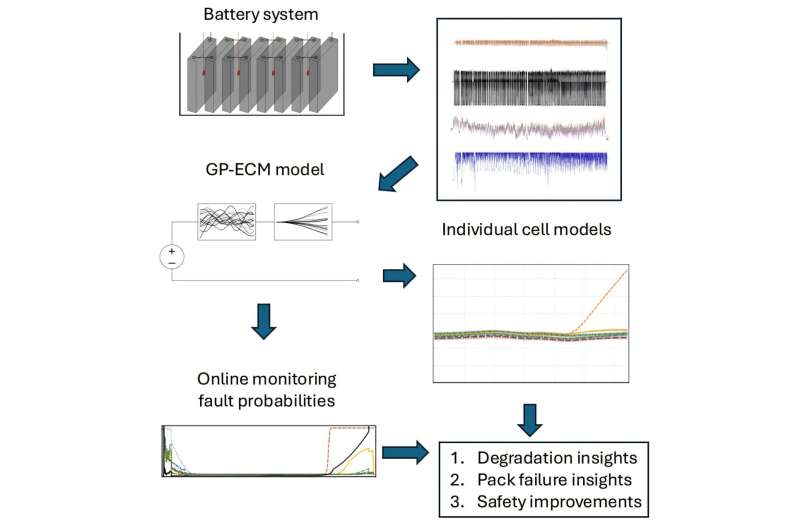
The safe use of lithium-ion batteries, such as those used in electric vehicles and stationary energy storage systems, critically depends on condition monitoring and early fault detection. Failures in individual battery cells can lead to serious issues, including fires.
To mitigate these risks, researchers at TU Darmstadt and the Massachusetts Institute of Technology (MIT) have developed novel methods for battery analysis and monitoring that leverage physically constrained machine learning approaches.
The team of Joachim Schaeffer, Eric Lenz, and Professor Rolf Findeisen from the Institute of Automation Technology and Mechatronics at TU Darmstadt, together with the groups of Professor Richard Braatz and Professor Martin Bazant at MIT, developed a method that combines physical methods with machine learning.
Using recursive Gaussian processes, they can detect time-dependent and operational changes in battery cells. These recursive methods can be applied in real-time and efficiently process large amounts of data, enabling continuous online monitoring of battery systems in the future.
For this research, the scientists were able to use a unique dataset: a research partner anonymously provided data from 28 battery systems that had been returned to the manufacturer due to problems. The dataset includes more than 133 million data rows from 224 battery cells and is one of the first of its kind to be made publicly available.
The results of the methodical developments and analyses, recently published in Cell Reports Physical Science, confirm that often only a single cell in a battery system exhibits abnormal behavior, which can affect the entire system. These findings contribute to a better understanding of how batteries age and under what conditions they fail. The methods make it possible to continuously monitor batteries in the future, thus increasing safety.
Joachim Schaeffer, a doctoral student at the Control and Cyber-Physical Systems Laboratory, Department of Electrical Engineering and Information Technology at TU Darmstadt and at MIT, was awarded the MIT Open Data Prize for the open access data produced during the project. Out of more than 70 submissions, 10 prize winners were selected.
